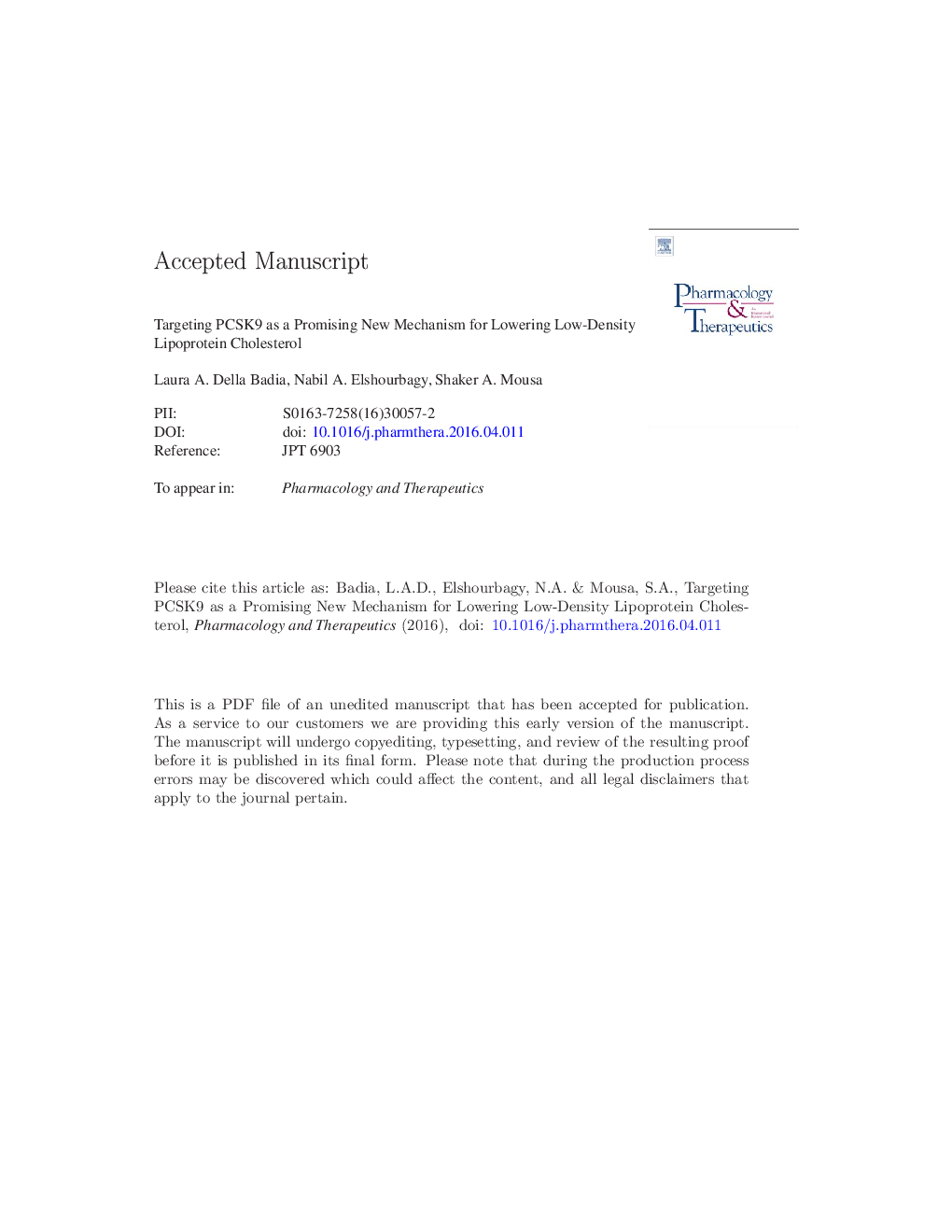| Article ID | Journal | Published Year | Pages | File Type |
|---|---|---|---|---|
| 5843886 | Pharmacology & Therapeutics | 2016 | 44 Pages |
Abstract
Statins and other lipid-lowering drugs have dominated the market for many years for achievement of recommended levels of low-density lipoprotein cholesterol (LDL-C). However, a substantial number of high-risk patients are unable to achieve the LDL-C goal. Proprotein convertase subtilisin/kexin 9 (PCSK9) has recently emerged as a new, promising key therapeutic target for hypercholesterolemia. PCSK9 is a protease involved in chaperoning the low-density lipoprotein receptor to the process of degradation. PCSK9 inhibitors and statins effectively lower LDL-C. The PCSK9 inhibitors decrease the degradation of the LDL receptors, whereas statins mainly interfere with the synthetic machinery of cholesterol by inhibiting the key rate limiting enzyme, the HMG CoA reductase. PCSK9 inhibitors are currently being developed as monoclonal antibodies for their primary use in lowering LDL-C. They may be especially useful for patients with homozygous familial hypercholesterolemia, who at present receive minimal benefit from traditional statin therapy. The monoclonal antibody PCSK9 inhibitors, recently granted FDA approval, show the most promising safety and efficacy profile compared to other, newer LDL-C lowering therapies. This review will primarily focus on the safety and efficacy of monoclonal antibody PCSK9 inhibitors in comparison to statins. The review will also address new, alternative PCSK9 targeting drug classes such as small molecules, gene silencing agents, apolipoprotein B antisense oligonucleotides, and microsomal triglyceride transfer protein inhibitors.
Keywords
Related Topics
Health Sciences
Pharmacology, Toxicology and Pharmaceutical Science
Pharmacology
Authors
Laura A. Della Badia, Nabil A. Elshourbagy, Shaker A. Mousa,
